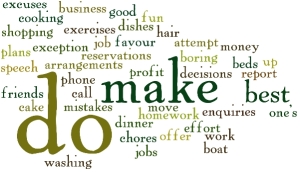There is often some confusion about can and be able to, so let’s see if I can clear that up a bit for you.
Can and be able to are often interchangeable and you can usually use either one without a difference in meaning. But not always.
Can is a modal auxiliary verb that expresses general ability in the Present tense, or could for general ability in the Past tense.
Be able to is not a modal auxiliary verb, it’s just the verb “be” + the adverb “able” + the infinitive “to”.
.
Present Ability. We use both can and be able to, but can is much more common:
✔ James can speak three languages.
✔ James is able to speak three languages.
✔ Michelle can easily multitask.
✔ Michelle is able to easily multitask.
.
Future Ability. We only use will be able to to talk about a future skill or ability that you don’t have yet, but you will have in the future. We never use can for an ability that you will only have in the future:
✔ When I finish training I will be able to run a 5 minute mile.
✘ When I finish training I can run a 5 minute mile.
✔ I will be able to see better when I get new glasses.
✘ I can see better when I get new glasses.
We use either can or be able to when we are talking about decisions and future arrangements:
✔ The doctor can see you next Monday.
✔ The doctor is able to see you next Monday.
✔ I’m busy now, but I can help you in an hour.
✔ I’m busy now, but I’ll be able to help you in an hour.
✔ Mom can drive you to school tomorrow.
✔ Mom is able to drive you to school tomorrow.
.
Past Ability. We use could or was/were able to to talk about an ability that existed for a long time in the past, but which isn’t true now:
✔ When I was young, I was able to eat like a pig and not get fat.
✔ When I was young, I could eat like a pig and not get fat.
✔ When I was a teenager, I could stay up all night without getting tired.
✔ When I was a teenager, I was able to stay up all night without getting tired.
We only use was/were able to with action verbs to talk about an ability related to a single event:
✔ We were able to go sailing yesterday because the weather was so nice.
✘ We could go sailing yesterday because the weather was so nice.
✔ I was able to file my taxes online this year.
✘ I could file my taxes online this year.
✔ Yesterday we were able to get tickets for the concert.
✘ Yesterday we could get tickets for the concert.
But we use either can or was/were able to with some stative verbs (see, hear, feel, taste) to talk about an ability related to a single event:
✔ Were you able to see the fireworks from your balcony last night?
✔ Could you see the fireworks from your balcony last night?
✔ I was able to taste the salt in her cooking.
✔ I could taste the salt in her cooking.
✔ Because I was sitting in the front row, I was able to hear the teacher clearly.
✔ Because I was sitting in the front row, I could hear the teacher clearly.
We use couldn’t or wasn’t/weren’t able to for negative statements for both single events and a long period of time:
✔ Yesterday he wasn’t able to finish his dinner.
✔ Yesterday he couldn’t finish his dinner.
✔ I wasn’t able to swim when I was younger.
✔ I couldn’t swim when I was younger.
✔ We weren’t able to get tickets for the concert.
✔ We couldn’t get tickets for the concert.
.
Here is a visual chart to help you out:
|
Can/Could (affirmative) |
|
Cannot/Can’t/Couldn’t |
|
Be Able To (affirmative) |
|
Be Able To (negative) |
| Past Ability |
She could read when she was five. |
|
She couldn’t read when she was five. |
|
She was able to read when she was five. |
|
She wasn’t able to read when she was five. |
| Past Repeated Actions |
When they were young, they could run marathons. |
|
When they were young, they couldn’t run marathons. |
|
When they were young, they were able to run marathons. |
|
When they were young, they weren’t able to run marathons. |
| Past, Single Action, Stative Verb |
I could feel the wind in my hair. |
|
I couldn’t feel the wind in my hair. |
|
I was able to feel the wind in my hair. |
|
I wasn’t able to feel the wind in my hair. |
| Past, Single Action, Action Verb |
NOT POSSIBLE!! |
|
I couldn’t get tickets for the concert. |
|
I was able to get tickets for the concert. |
|
I wasn’t able to get tickets for the concert. |
|
|
|
|
|
|
|
|
| Present Ability |
They can speak Italian. |
|
They can’t speak Italian. |
|
They are able to speak Italian. |
|
They aren’t able to speak Italian. |
|
|
|
|
|
|
|
|
| Future Ability or Skill |
NOT POSSIBLE!! |
|
|
|
When we pass our driver’s exam, we will be able to drive a car. |
|
|
| Future Decisions and Arrangements |
The dentist can see you tomorrow morning. |
|
The dentist can’t see you tomorrow morning. |
|
The dentist will be able to see you tomorrow morning. |
|
The dentist won’t be able to see you tomorrow morning. |

